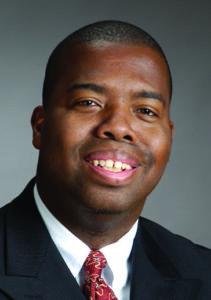As my family and I began our short trip to Nashville, Tenn., from Atlanta for the Christmas break, my wife’s work phone began to ring nonstop.
My wife works for a nonprofit organization that ministers to and aims to restore dignity to people who have found themselves without shelter. She loves her work. However, as you can imagine, the Christmas season is one of the busiest times of the year for her. So, in not wanting to interrupt our family time together, she picked up the phone, thinking it would be a short 5-minute phone conversation.

Maina Mwaura
However, in her line of work, nothing is ever short. In fact, life and death seem always to be on the line. Unfortunately, this phone call lived up to that reputation.
As my wife said hello, I could see the panic in her eyes as she calmly took out her personal phone to alert one of her colleagues to call 911 for her client “Steve.” He had decided to end his life because his car had been repossessed due to a small $1,600 debt.
Steve is a veteran who fought for our country and was just beginning to get his life back on track. He had found a job he was on his way to before seeing his car repossessed for missing some of the payment arrangements he had worked out with the bank. Steve had enough. He explained to my wife that he had taken all the pills that he could find to end his life.
As my wife was staying calm on the phone to alert the authorities and get medical personnel to help Steve, I couldn’t help but think of the conversation I recently had with Matthew Desmond, sociology professor and author of the new book Poverty, by America.
“We are in a disgrace class all our own.”
“We have so much poverty in America because of the way we’ve designed our country,” Desmond said. “A lot of us who have found economic security in America bear some responsibility. We’re connected to the problem and the solution. We have double the child poverty rate of South Korea or Germany or Canada, for example. We are in a disgrace class all our own. And part of this reason has to fall back on the American people, not just Congress or the political elites, but on the American people.”
Desmond also believes the American church is having a hard time coming to grips with this issue because of the skeletons in our own closet.
“I love the church but when you look back at the 1980s, you take it from the Jim and Tammy Faye Bakker days, it’s hard for them to confront it when they have so bought into it. And that radically changed in the 1980s. I mean, they jumped full-fledge into it. And now they’re so locked to it — to their multi multimillion dollar buildings. The people who should be leading (addressing poverty) can’t because they’ve got to pay for those buildings at the same time. If they do, they’ll come across left-wing when their people want them to be right-wing. It’s a weird dichotomy we find ourselves in.”
We have a real crisis in this country when it comes to the issue of poverty. But we also have a crisis in the church having the power to fight against poverty but prioritizing other things. This isn’t a negative commentary on the church. There are many churches serving their communities weekly. However, I don’t think we understand the power and authority we as the church have to better the American system for people who have found themselves stuck in the evil system of poverty.
Many American Christians see in Matthew 28:18-21 (the Great Commission) a singular view of merely studying and knowing the word of God, preaching the gospel, building the church. But what would happen if we took this text literally and held to the belief that we have been given authority to make real changes to our American system? What if we challenged politicians and people of influence and power to make real changes to our system when it comes to poverty?
“What if we challenged politicians and people of influence and power to make real changes to our system when it comes to poverty?”
In Rick Wartzman’s new book Still Broke, he examines the so-called American “Walmart culture.” Walmart is the largest American employer in our country and claims it was founded on Judeo-Christian principles by its founder Sam Walton. It claims its goal was to rise up and take care of its employees and treat them with fairness, since many of them are being held down by the system of poverty in our country. Walmart headquarters is located in the Bible-Belt state of Arkansas.
What would happen if the churches in that state were to use its power to hold the company accountable in paying all employees a living wage? What a difference that could make in our country. What’s more, the company wouldn’t miss a beat. It would be just like Chick-fil-A, which pays a living wage to its employees and offers the best customer service around, which is why many employees like working there.
The evidence is all around us that poverty is crippling this country. It’s something that, along with inflation, will come knocking at our church’s door sooner or later. It’s time for the American church to own and recognize its power. It must get out of the bed of only taking care of itself and seeing life through a singular lens on this issue (passing out food, going on mission trips.). Those things are good, but we can do more with our power. We can mobilize our people to rise up and solve this problem.
We’ve been given the authority by God to do so.
Maina Mwaura is a freelance writer who lives in Kennesaw, Ga. He is a graduate of Liberty University and New Orleans Baptist Theological Seminary.


